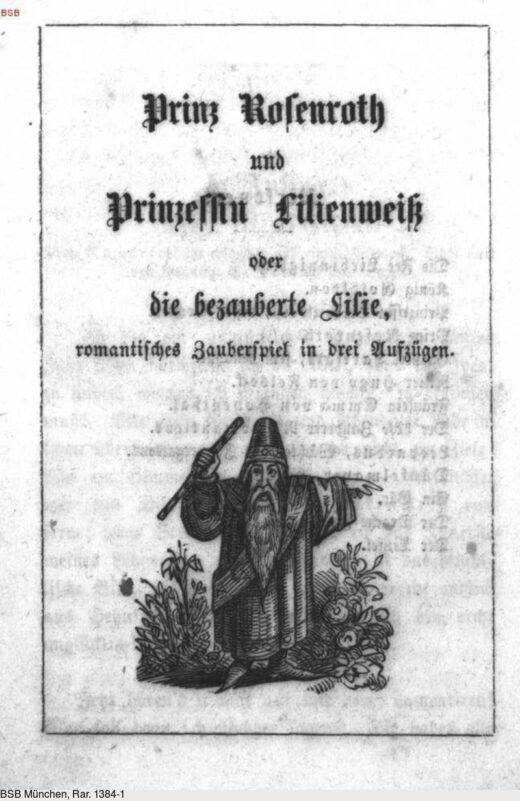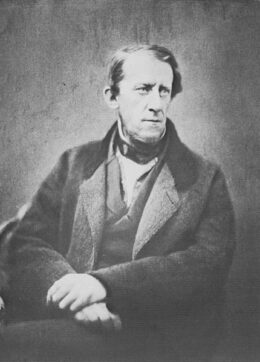
Printed
40 pages
Author(s)
Prinz Rosenroth und Prinzessin Lilienweiß
Prinz Rosenroth und Prinzessin Lilienweiß is the first play written by Franz von Pocci for puppeteer Josef Leonhard Schmid (1822-1912): the play was performed on the inauguration evening of the Münchner Marionettentheater on December 5th, 1858. It immediately met with great success and was performed 136 times, until the theatre closed in 1933. Known as an author and a tale illustrator, Pocci mixes in this play the trivial genre generally associated with the puppet repertoire and the then-popular genre of the féérie. The names of the characters, Rosenroth (Red-rose) and Lilienweiß (White Lily), as well as the transformation of women into flowers, are reminiscent of another trend of the time: the “language of flowers”, a romantic code based on floral metaphors.
A prince frees a princess from a spell
Accompanied by his horseman Kasperl Larifari, prince Roseroth (Red-rose) is desperately looking for princess Lilienweiß. The fairy Liebinniglich appears in his dream and reveals that Lilienweiß (White Lily) was turned into a flower by the magician Negromanticus: it is a way for him to take revenge on the women who turned him down. With the help of the knight Hugo von Felseck–turned into a bear by the magician–Rosenroth fights and kills the dragon that was keeping the enchanted oak: a branch of this tree will allow Rosenroth to turn the flowers and animals back into humans. They all manage to enter Negromanticus’ garden, apart from Kasperl who is turned into a donkey. Rosenroth rescues the women that were turned into flowers, as well as Hugo von Felseck and of course Kasperl. The fairy Liebinniglich defeats the wizard once and for all, as he disappears amidst the flames.
Other titles
First performance
Münchner Marionettentheater
Publications and translations
Franz Pocci: Lustiges Komödienbüchlein. München, J.J. Lentner, 1859
Franz von Pocci: Lustiges Komödienbüchlein 1, "Editio Monacensia", hrsg. von Ulrich Dittman und Manfred Nöbel, München, Allitera Verlag, 2007
